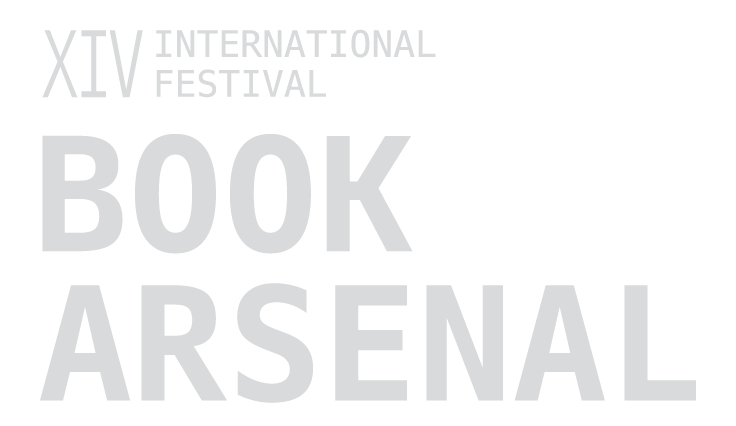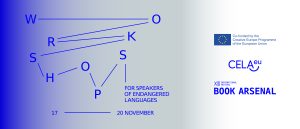On November 17, 18, and 20, the Book Arsenal will host online writing workshops for speakers of endangered languages as part of the CELA project.
These sessions will help emerging authors from diverse communities overcome linguistic and cultural boundaries by connecting with one another and receiving guidance from professionals.
Connecting Emerging Literary Artists (CELA) is an international talent development project co-funded by the Creative Europe Programme of the EU.
The workshops will be held in an interactive online format and are open to speakers of endangered languages such as Gagauz, Yiddish, Karaim, Crimean Tatar, Krymchak, Romani, Rumeic, and Urum. Participants will have the opportunity to listen to lectures, practice writing, and ask the speakers questions related to the topic.
Writing workshops program:
November 17, 7:00 p.m. — Your voice on paper
Led by Oksana Ziobro, CELA project literary consultant.
November 18, 7:00 p.m. — How to shape personal stories: from documentary prose to autofiction
Led by Rostyslav Semkiv, writer, literary scholar, and moderator for CELA authors.
November 20, 6:00 p.m. — How to tell your story so that it gets read?
Led by Eugenia Kuznetsova, writer and participant of the first CELA cycle.
To join the workshops, please register by November 14, 2025 using the link below.
REGISTER
The Zoom link for the online workshops will be sent to your email address after November 3.
Connecting Emerging Literary Artists (CELA) is an international project of cooperation and development of literary talents, promotion and distribution of literary works, involving 12 literary organizations from 11 countries of the world. And this is already the third iteration of CELA. In 2024, the team of the International Book Arsenal Festival joined this large-scale European project for the first time. It is designed for four years, more details can be found here.
The CELA project is funded by the European Union. The views and opinions expressed are solely those of the author(s) and do not necessarily reflect the views of the European Union or the European Education and Culture Executive Agency. Neither the European Union nor the funding body can be held responsible for them.

